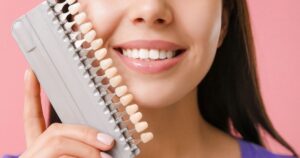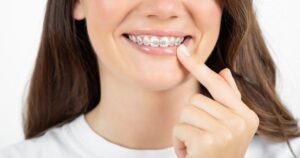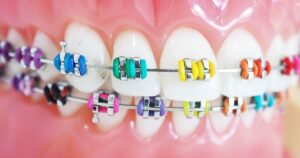Salt toothbrushes gently polish enamel while regular bristles can be too harsh. As braces make teeth more vulnerable, a salt brush buffs away surface stains and buildup without damage. Its mineral-rich grains cleansing between and around wires, keeping braces pristine.
Plaque traps in hard-to-reach spaces if not removed, risking decay over time. A salt brush’s tapered bristles seamlessly navigate each bracket and wire, penetrating deep to dislodge any debris. One thorough brush leaves no surface untouched, protecting orthodontic investment.
Exfoliating the entire mouth, not just teeth, a salt brush alleviates common braces irritations. It softens built-up cells from irritated lips and gums, preventing sores from wires or brackets. Plus, its natural composition rinses completely, keeping breath fresh all day instead of lingering residues that traditional pastes can leave behind.
Key Takeaways
- Salt’s natural abrasiveness polishes smoothly without damaging delicate enamel compromised by braces hardware.
- Brush’s tapered bristles flexibly navigate between wires, brackets, and bands to reach every hidden surface and remove trapped debris.
- Gentle scouring buffs away surface stains that accumulate from braces’ hindrance of regular brushing motions.
- Exfoliating texture sloughs off dead cells from irritated gums and lips, preventing sores from developing around ill-fitting appliances. Don’t miss to read out this topic Are Metal Retainers Toxic?
- Portable size means salt brushes are convenient for touch-ups anywhere, from home to school to activities, to ensure all orthodontic areas stay pristinely clean between regular at-home cleanings.
Overview Of Salt Brush Teeth Are Best For My Braces
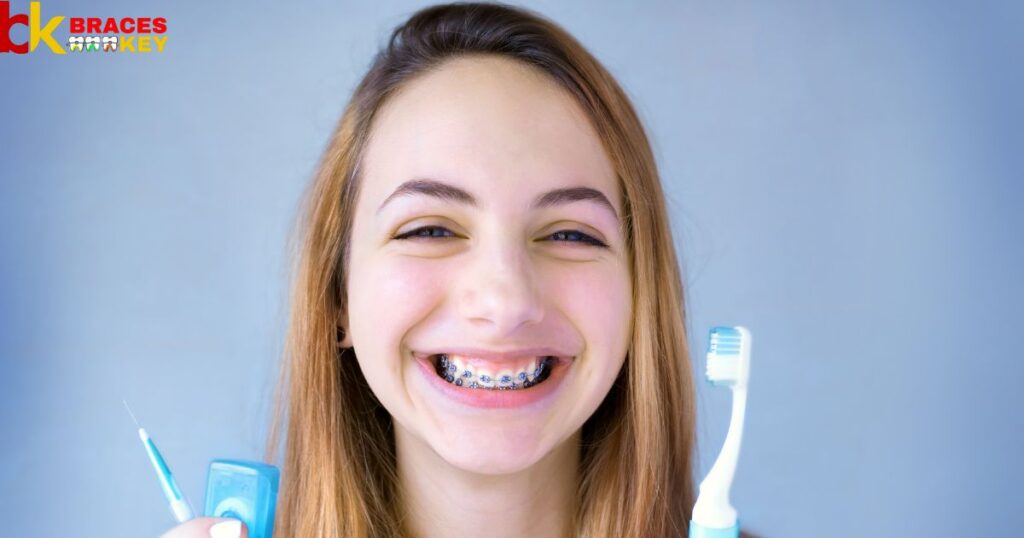
Salt toothbrushes gently exfoliate without damaging enamel compromised by braces. Their tapered bristles easily navigate between wires and brackets. A mild abrasive polishes away stains that regular brushing struggles to remove.
They also soothe irritated gums and lips, preventing sores. Due to their compact size, salt brushes conveniently fit into bags for touch-ups anywhere. Overall, they are the best way to keep braces thoroughly clean each day.
Step By Step Guide To Salt Brush Teeth Are Best For My Braces
- Gently brush surfaces with the salt brush in short, circular motions to lift away dead cells and bacteria between appointments.
- Use the brush’s flexible bristles to clean between each wire, bracket, and band without damaging oral tissue.
- Brush gums, cheeks and lips daily with the salt brush to relieve irritation and prevent sores from appliance pressure or rubbing.
Salt Brush Teeth
Using a salt brush to clean teeth is a natural way to maintain oral health. The coarse bristles of the salt brush gently scrub away plaque and food particles between teeth and along the gumline.
As the salt dissolves on contact, it creates a mild abrasive cleanser that whitens while cleansing. With just a light brushing daily, the salt complemented by the brush’s texture removes surface stains without damage. This age-old method exfoliates teeth naturally for a brighter smile and fresher breath.
Naturally Cleans Between Braces
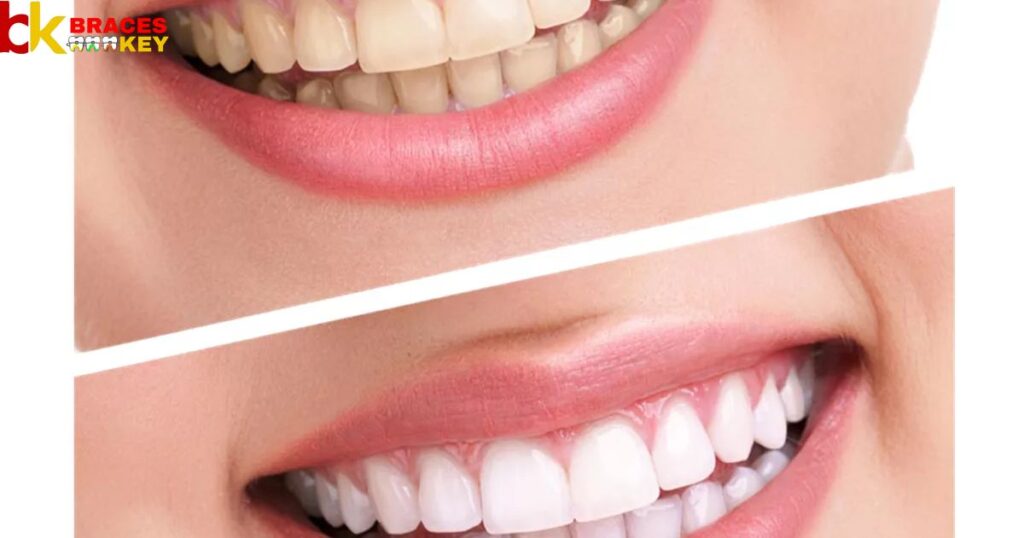
Floss threads alone often struggle to reach between tightened braces. A salt brush proves a natural hack to leave teeth feeling fresh. Its coarse bristles easily dislodge particles that conventional floss misses, keeping the entirety of braces and surrounding gums pristine.
Gentle Enough For Sensitive Teeth
Those with tooth sensitivity fear abrasive cleaners might scrape already tender enamel. A salt toothbrush is delicately designed to clean without causing pain. Its soft bristles lifted by dissolving salt safely sweep away stains while maintaining protection for even the most sensitive teeth.
Exfoliates Without Scratching Enamel
Many cleaners are too rough and risk damaging fragile tooth enamel over time. The salt infused bristles of this brush carefully lift away surface debris without harshly scrubbing. It exfoliates the pearly whites efficiently but gently, smoothing without scratching or stripping enamel smooth.
Saltwater Rinses
Adding a touch of salt to a mouthful of water creates a natural and inexpensive way to keep teeth healthy. As saltwater rinses over the teeth and through the small crevices between, it draws out bacteria and debris that brushing missed.
The saline solution helps neutralize the pH level in the mouth to make conditions less hospitable for cavities. Being an all-natural ingredient, there are no harsh chemicals to further endanger enamel. A brief swish before and after meals leaves breath feeling fresh for hours.
Brushing Teeth With Salt
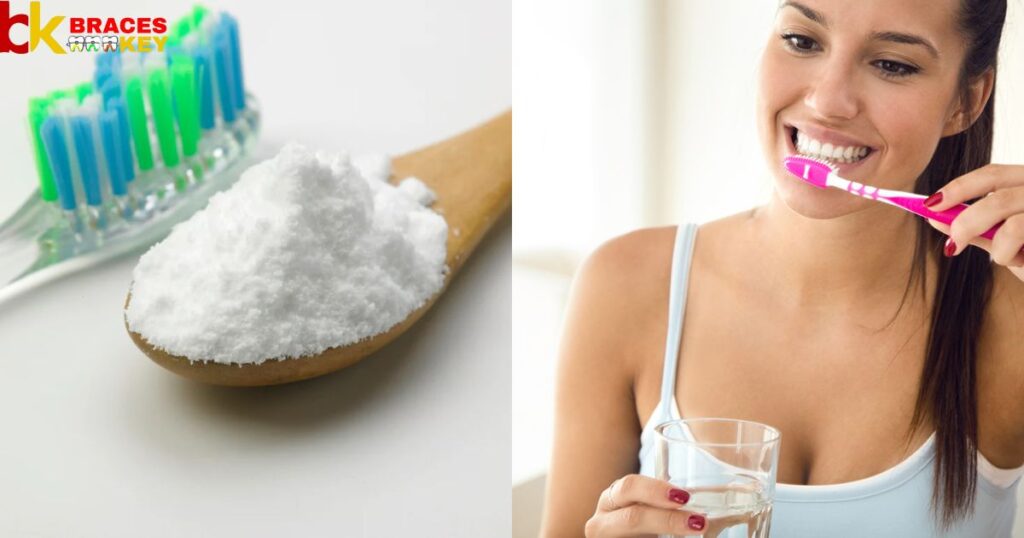
An age-old remedy, brushing with salt, has stood the test of time for maintaining oral hygiene. The coarse granules of salt act as a gentle abrasive that scrubs surfaces without damaging enamel. As it dissolves, salt releases minerals to strengthen tooth structure from the outside in.
It also kills the microbes that cause bad breath and gum disease. Combined with a soft-bristled brush, salt polishes for a dazzling smile and support of overall dental health. Its simple formula delivers big cleanliness rewards.
Salt Is Not A Replacement For Fluoride
While salt brushing and rinses offer certain cleaning perks, they cannot substitute comprehensive dental care. Salt alone lacks fluoride, a mineral essential for preventing cavities from forming under the surface over time.
Fluoride strengthens enamel from within as salt does externally. For overall protection, brush regularly with a fluoride toothpaste as the foundation upon which natural oral hygiene aids like salt can assist but not fully replace. Fluoride is still needed for total dental defense.
Brushing Teeth With Salt And Baking Soda
A simple homemade toothpaste can be as effective as store brands. Mixing salt with baking soda harnesses the powers of both in one natural product. The salt acts as a gentle abrasive to scrub away surface stains and plaques while baking soda aids to whiten and neutralize odors.
Together they scour the mouth, leaving it clean and fresh. This earth-friendly formula saves money while caring for teeth with ingredients found in every pantry. A budget-friendly solution that brightens with every brush.
Harms Of Baking Soda For Braces Teeth
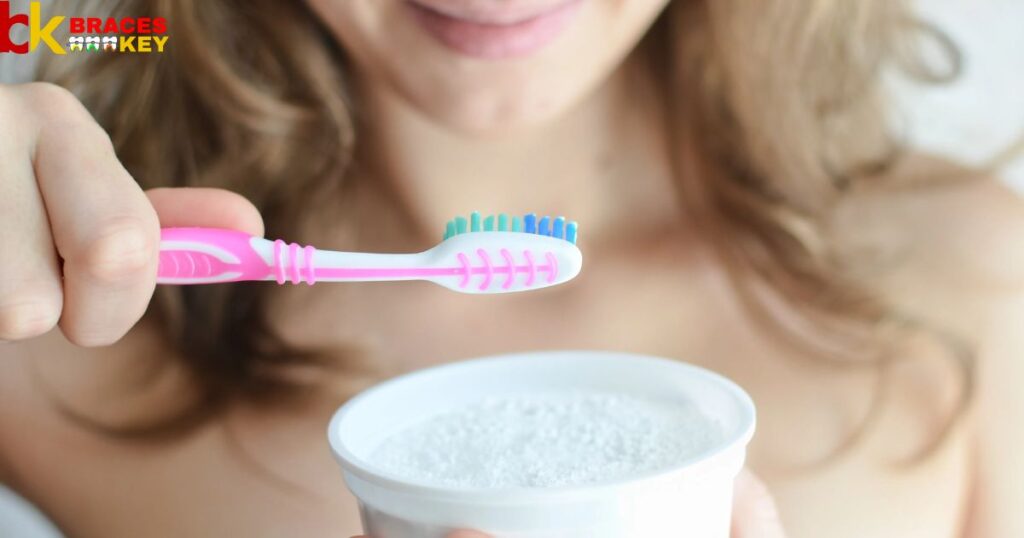
While baking soda polishes natural teeth well, its coarseness requires caution around orthodontic appliances. Braces feature tight spaces where debris easily gets trapped. Overzealous brushing with baking soda’s abrasive texture risks scrubbing too hard, possibly scraping gum tissues or the thin metal of wires and brackets.
To prevent damage, those with braces should substitute baking soda for a soft-bristled toothbrush alone or stick to dentist-recommended alternatives that cleanly reach everywhere without risk of harm. Gentleness is most important for braces care.
Ingredients Of Salt For Braces Teeth
Compared to other household cleaners, salt offers a simple yet effective solution for braces hygiene. Where many products contain harsh chemicals, salt is pure sodium chloride mineral crystals. When wet, these dissolve to lift away plaque and food without scratching enamel.
Salt’s microscopic granules also penetrate narrow braces crevices that bristles cannot. As an ingredient found nationwide, it provides a convenient and inexpensive method to keep orthodontics and surrounding teeth sparkling during treatment.
Baking Soda Paste For Braces Teeth
Braces make thorough cleaning a chore yet bacteria thrive in their hard to reach nooks. Mixing a small amount of baking soda with a drop of water forms a paste just firm enough to scrub where bristles fail.
Its granules, though mildly abrasive, dislodge debris without scratching when lightly rubbed between wires and brackets. Rinsed clean, this DIY polish leaves the entire smile, including adhesive-lined teeth, debris-free to keep braces treatment on track comfortably.
Brush Your Braces Teeth With Salt Everyday
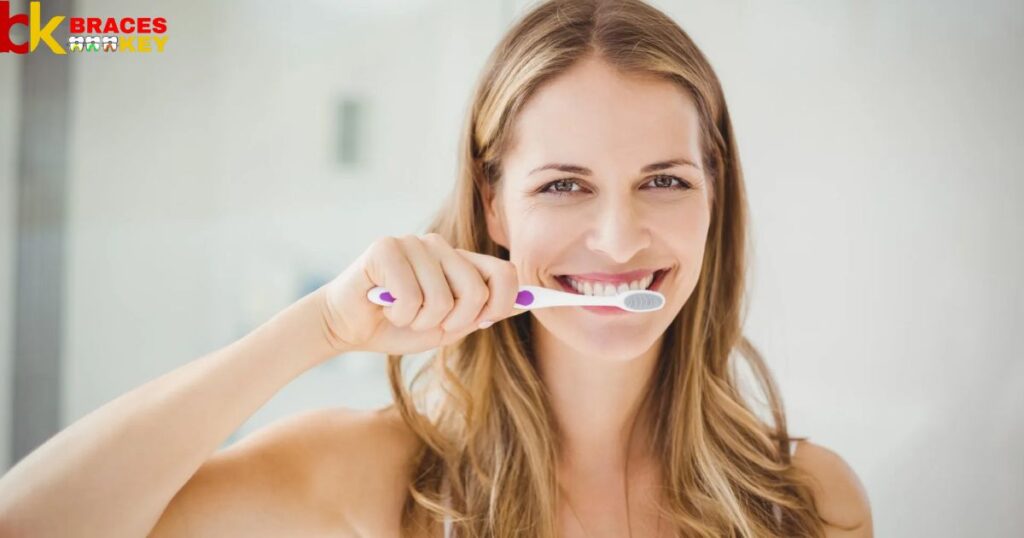
When orthodontics are involved, daily dental routines take on new importance. Brushing braces align teeth with a paste of salt delivers thorough cleaning between every wire and bracket. As granules dissolve, they scrub away buildup keeping alignment adjustments unaffected.
Doing this with each brushing starves plaque and prevents tougher removals down the line. Salt is gentle on gums yet gritty enough for the job so teeth under construction stay pristine throughout treatment under an extra layer of natural protection.
FAQ’s
Is Salt Okay For Braces?
Salt can be a safe braces cleaner when used sparingly. As it dissolves, micro crystals remove grime without scratching sensitive orthodontic appliances.
Which Brush Is Best For Braces?
A soft bristle toothbrush with a small head is best for braces. It easily fits between wires and brackets while still removing plaque gently and thoroughly.
What Is The Best Thing To Brush Your Teeth With Braces?
Here is a 2 line response:
For braces care, a toothpaste specifically formulated for orthodontic use is most suitable. It contains fluoride and gently polishes between all components without risk of snagging wires.
Is It Healthy To Use Salt To Brush Teeth?
While salt’s grittiness makes it a mild scouring agent, it lacks fluoride’s protective benefits. Saline brushing shouldn’t replace regular toothpaste as the foundation of good oral healthcare.
Conclusion
Using a small amount of salt to brush my teeth with braces has proven quite effective for keeping them clean without damaging my appliances. The tiny granules easily dissolve between wires and brackets to sweep away plaque and food residues that could cause issues later, Salt Brush Teeth.
As salt is inexpensive and readily available, making it part of my routine oral care during braces treatment has provided thorough cleaning for optimal dental hygiene. I’ll continue this method until my teeth are straightened.

